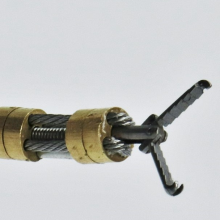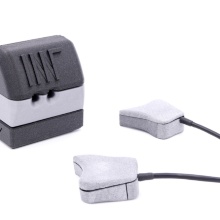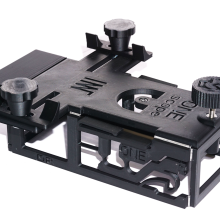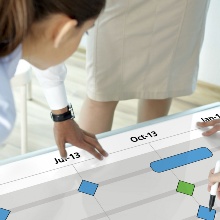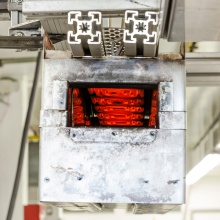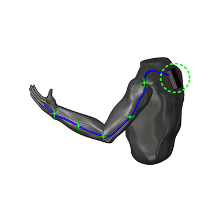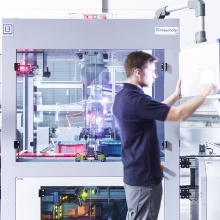Research is our strength
Mechanical engineering in Stuttgart belongs to the mechanical engineering faculties with the strongest research in Germany and the faculties with the highest third-party funding. In recent years, we have regularly raised more than 60 million euros for research from basic research-related DFG funding, federal funding and industry cooperations.
An important indicator of our research performance is also our participation in clusters of excellence, Collaborative Research Centres and Research Training Groups at the University of Stuttgart. Scientists from both Faculties 4 and 7 are involved in many externally funded, interdisciplinary collaborative initiatives, e.g. on new mobility concepts, adaptive envelopes for the built environment of tomorrow or data-integrated simulation science.
Our scientific staff is highly innovative. This is evidenced by more than 250 invention disclosures in the last five years alone. Numerous national and international awards speak for the high reputation of our employees.
We do research for the society
For us, top research is not an end in itself, but a social obligation. Our mission is to develop intelligent systems for a sustainable society. That is why our research topics are geared to the major challenges of our time and address the areas of:

Autonomous Systems
In the future, autonomy will be used in a wide variety of applications in industry as well as in our private everyday lives: From rail and road vehicles to traffic and mobility, production and manufacturing plants to mobile swarm robots. In interdisciplinary collaborations, we research and develop AI-based autonomous systems that adaptively respond to events in their environment and form a self-generated action plan to make appropriate decisions. In addition to the development and research of autonomous systems, we lead the technical-scientific and social discourse in order to make such systems usefully applicable in diverse application contexts in the future.
Work and Ergonomics
Digital transformation offers a wide range of opportunities and is a driving force for innovation. At the same time, digitalization is influencing the way we work and fundamentally changing the world of work. We research and develop technologies and applications for industrial work and give rise to new forms of human-technology interaction. For us, technological and social innovations go hand in hand. We combine technological solutions with design and organizational principles of good work, putting the human being at the core.
Energy and Resources
Fossil fuels such as petroleum, natural gas or coal are only available in limited quantities on our planet. In addition, they emit many greenhouse gases as well as harmful pollutants and contribute to the global greenhouse effect. At the same time, the global demand for energy for the future supply of electricity and heat is growing. Continued industrialization and world population growth mean that more energy is needed. We research and teach on new technologies for energy production and renewable energy resources such as biomass, hydropower and ocean current energy, wind, photovoltaic, solar thermal, fuel cell and hydrogen economy.
Mobility
The transformation of transportation toward sustainable and safe mobility is one of our greatest technological and social challenges. We conduct interdisciplinary research and create the foundations for the mobility of the future. Emission-free vehicles and mobility concepts that exploit the potential of digitization lead to greater efficiency in resources and in traffic space. Beyond established thinking and solution spaces, we are working on technologies that make our mobility and vehicles sustainable, climate-neutral and safe.
Production
We research and develop production systems and production technologies that enable largely self-organized production. The basis for this are digitally networked systems that enable direct communication and cooperation between people, machines, facilities, logistics and products. In future factories, the focus will be on diversity and variance. The increasing need for individualization, flexibilization and efficiency in production coupled with the innovative power of digitization is leading to a paradigm shift: Rigid factory lines are becoming modular systems with location-flexible means of production and overcoming the separation between value creation and logistics.
Our research projects
Contact
Stuttgarter Maschinenbau
Pfaffenwaldring 9, 70569 Stuttgart, 5. OG

Ralph-Walter Müller
Fakultätsgeschäftsführer

Charlotte Kuhn
Dr.-Ing.Faculty mangager









